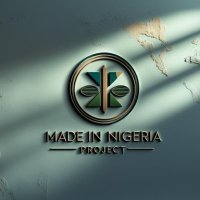
Nigeria Africa’s largest economy is blessed with abundant natural resources a vibrant workforce and a growing entrepreneurial spirit. However the country still heavily depends on imports for many essential goods from food items to electronics. The "Made in Nigeria" initiative aims to change this narrative by promoting local manufacturing reducing import dependency and creating jobs.
In this blog we’ll explore:
- The importance of the "Made in Nigeria" project
- Success stories of Nigerian-made products
- Challenges facing local production
- How the government and citizens can support this movement
Why "Made in Nigeria" Matters
- Economic Growth – Local production strengthens the economy by keeping wealth within the country and reducing foreign exchange pressure.
- Job Creation – Manufacturing and agro-processing industries create employment opportunities for millions of Nigerians.
- Reduced Import Dependency – Encouraging local production decreases reliance on foreign goods improving Nigeria’s trade balance.
- Quality & Innovation – Nigerian entrepreneurs are producing high-quality goods that compete globally from fashion to tech.
Success Stories: Nigerian Brands Making Waves
Several homegrown brands have shown that "Made in Nigeria" products can thrive:
- Dangote Group – Cement sugar and fertilizer production.
- Innoson Vehicles – Nigeria’s first indigenous automobile manufacturer.
- Chikki Foods – Producing snacks from locally sourced ingredients.
- Afikpo Bags & Leatherworks – Handcrafted leather products gaining international recognition.
- Paystack & Flutterwave – Tech solutions revolutionizing digital payments in Africa.
These businesses prove that with the right policies and consumer support Nigerian-made goods can excel.
Event Venue & Nearby Stays
Federal Capital Territory, Federal Capital Territory, Nigeria, Abuja











